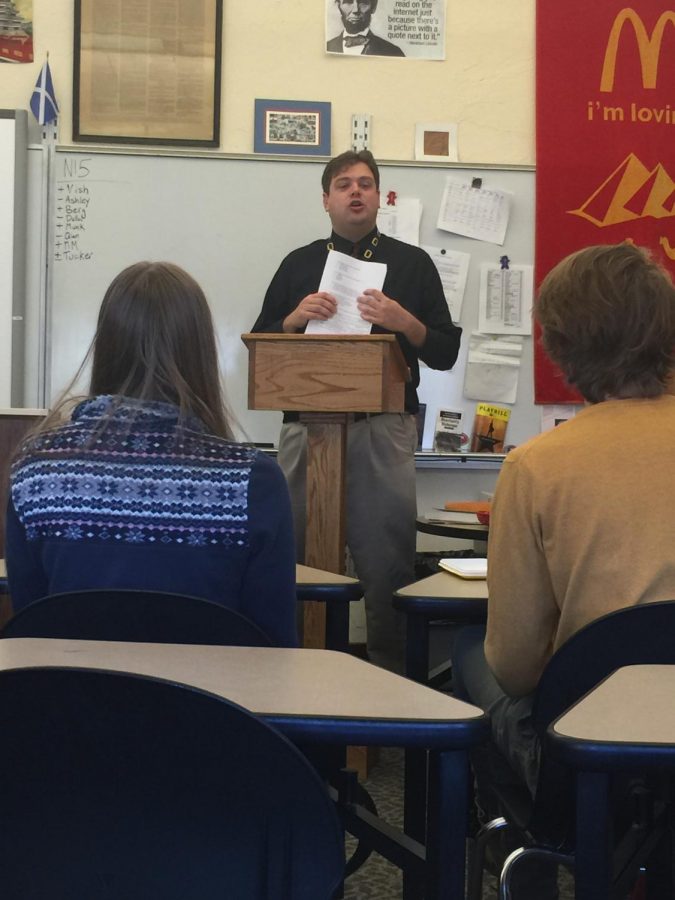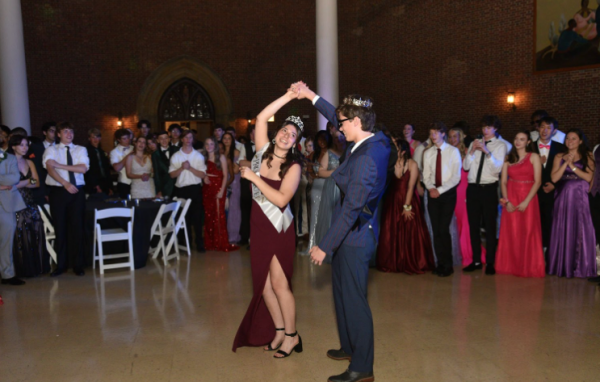An apple for your thoughts
Staff and students debate the importance of teachers’ beliefs in the classroom
Enlightening others: In AP U.S. Government, Mr. Deters discusses political parties with his students. Photo By: Jayden Rodriguez
In the classroom, teachers encourage their students to express their opinions to classmates so thoughtful conversation may ensue. However, most teachers don’t convey their own viewpoints to students.
In a survey consisting of 26 teachers, one said that they feel comfortable articulating their opinion to students, 14 said that they did not, and nine said they are willing to do so in the right situation.
Students were also asked for their opinion on this topic. In a poll of 68 students, 27 said that it’s okay for teachers to share their beliefs, 11 said that it is not, and 30 said that it depends.
Teachers and students who believe it’s appropriate for teachers to speak of their opinion have, for the most part, made the same conclusion: teachers are people, and they have rights.
“Teachers’ freedom of speech does not stop at the school grounds line – just like students’ freedom of speech does not stop at the school grounds line,” Natalie Johnston, who teaches business, said. “However, if the free speech is causing a disruption to learning, then it is a problem.”
Staff and students on the other side of this debate see the lack of teachers’ opinions in the classroom as beneficial for students’ education and welfare.
“I think that teachers should be able to relate and form a connection to their students without sharing their beliefs,” Paige Reymann (11) said. “The problem with sharing your beliefs in school is that some will not agree with these beliefs, which will single people out.”
There are students and teachers in the middle who believe that teachers can state their views, but with certain guidelines in mind.
“When sharing such things, it should be in a kind and respectful manner,” Bella Judd (10) said. “In doing so, they should be open to hearing other’s, as well as not stating their beliefs as right, versus another’s being wrong.”
There may not be an end to this debate, similar to most philosophical debates. However, it is important to discuss this topic so the relation between the teacher and the student becomes more beneficial.
“There are many many other possible issues and gains surrounding this topic,” Judd said. “But students and teachers can never identify, solve, or discover them all without trying.”






